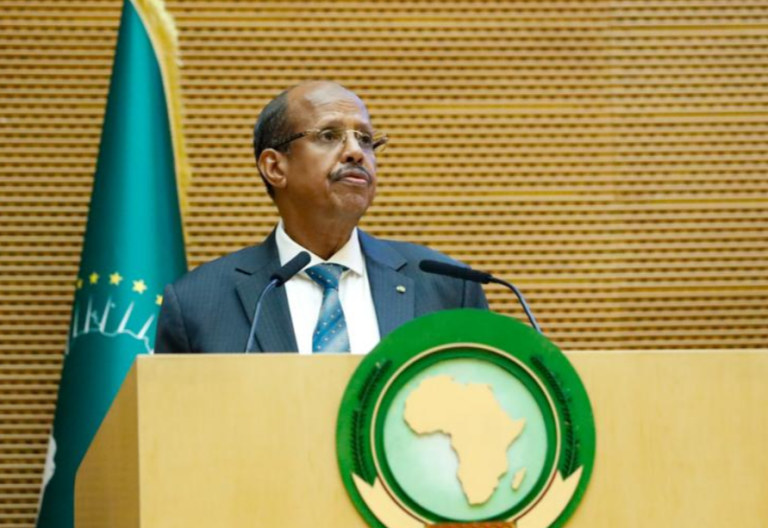
Are African unions on their deathbed? Or is he already dead? Important questions you are looking for answers.
Today, many negative events define the African continent, raising questions about the existence and relevance of Africa's political leadership.
War, hunger, illness, illiteracy, poverty, unemployment, and many other calamities covering infrastructure, health, education and technology.
The last time the African Union was asked was in February this year during the election of the committee chair.
The contest pitted Kenya's former Prime Minister Raila Odinga and Djibouti's Foreign Minister Mahmoud Ali Youssuf.
The campaign that led to polls was a fierce issue that attracted global media attention.
The February 25 contest witnessed Youssef's election as chairman of the new African Union Commission after abandoning Laila to replace Chad's Mahamatomu Safaki.
Since his election as AUC head of Youssef, nothing has been heard that makes me happy to satisfy both the union and its committee.
It has sparked the long Internesin War in the Democratic Republic of the Congo, the Ingrad military struggle in Sudan, the political hegemony struggle in South Sudan, and other life-related skirmishes in many West Africa and the Sahel countries, which have led to more than 20 million children leaving schools around the continent.
Africa is a pathetic case. This is a continent where children die of starvation and malnutrition, whose leaders steal from extremely poor people and their own countries' resources.
Hundreds of African migrants travelling on overloaded boats each day are perished in the Mediterranean, seeking to travel to Europe in search of what they consider to be a better life.
The deceased flees the persecution of Africa's oppressive regimes, poverty and poor health care.
Sadly, African leaders do not dare to confront these derogations and tragic events.
For a long time, Ugandan President Yoweri Kaguta Museveni has been a strong supporter of more focused, self-respecting leadership in Africa, mourning the humiliating people of the continent and has been linked to economic alienation in the world's spheres.
Paul Kagame, Rwandan counterpart of Museveni, has similarly expressed concern about the issue.
At the end of his administration's tail, the former Kenya president also called on the international level to raise issues, asking Africa to take charge of its own issues and address the issues facing the continent.
In his first months of inauguration since the August 9, 2022 general election, current Kenya President William Root was speaking out about the Pan-African issues experienced by migrants struggling while trying to cross the Mediterranean.
However, he was significantly broken about the subject.
The African Union and African leaders chose to look the other way as the continent continued to glide further into misery, trauma and pity.
The vacuum created by inertia from African heads of state appears to attract occupancy from young militarists Pan-Africans who are seeking a change in the way the political classes on the continent handle themselves.
Captain Ibrahim Traore, president of Burkina Faso, took power through a coup, but the youthful soldiers felt more than the African continent.
Traore speaks to the West about self-dependent and independence. Young Africans worship him. So are African Americans and the Caribbean.
While most African countries achieved independence over 60 years ago, the continent has yet to chart its own path in challenging global geopolitics.
African leaders still see from the periphery of despair in the global sector. There, key decisions are made and implemented on the widespread social, political and economic impacts of international imports.
For a long time, Africa has acquired a back seat on issues affecting their people, and has recently left the Western capital, and the Far East, to resolve the issue.
However, African heads of state meet annually under the auspices of the African Union to discuss the challenges and outcomes of the continent.
Oddly, the issue of illegal migration and control from affected countries is not a feature.
Such problems are left to find solutions in the West.
It's time for Africa to rise. Leaders must change the AU from just a talk shop to a serious caucus of rational men and women to build a strong foundation for the future of the continent.
African unions must wake up from their long sleep.
The author is the revision editor of the People Daily newspaper.


